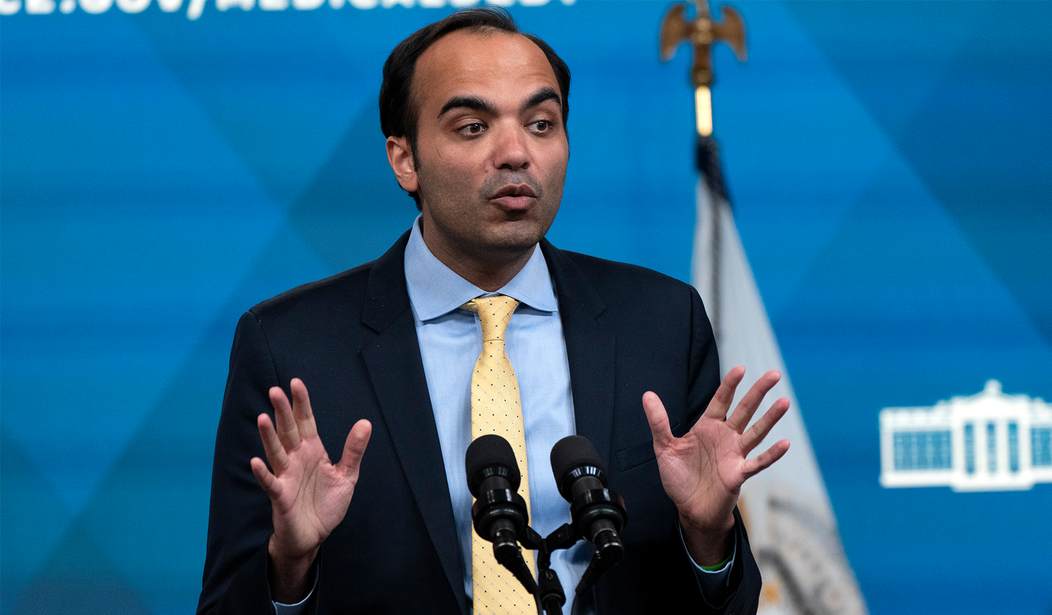November 5 was a day of reckoning for Democrats’ big government agenda. No amount of White House spin could convince Americans that the economic realities they face – higher prices, fewer new jobs, and less opportunity – were simply a figment of their imagination. They are the direct result of misguided policies spearheaded by political partisans.
Most Americans believe that President Joe Biden, Vice President Kamala Harris, and their allied members of Congress deserve most of the blame. And they’re right. Together, this unholy alliance increased the national debt over $7 trillion since President Trump left office. Even though the pandemic and the accompanying costly COVID relief measures occurred under Trump’s watch, these tax-and-spend partisans still managed to increase the national debt over $1 trillion more than Trump did. Talk about setting up the economy for failure.
While Biden-Harris has gotten most of the blame for the economy’s failures, others behind the scenes in their administration deserve just as much of the finger-pointing.
Take, for example, Consumer Financial Protection Bureau Director Rohit Chopra, who repeatedly pushed a radical ideological agenda regardless of the consequences and is now hilariously being forced to reap what he sowed.
While Chopra talks a good game about unions and worker protections — and backs up his words with heavy-handed mandates on American businesses — he has bristled when it comes to his own agency’s union demands. In an ironic twist, Chopra seems to lack the same empathy and responsiveness for his own workforce that he demands of the private sector.
Recommended
Workers at the CFPB, represented by the National Treasury Employees Union (NTEU), have requested a cost-of-living increase similar to the one provided to all other federal employees in 2024. This request has fallen on deaf ears, making Chopra’s CFPB the only federal agency not to provide such a raise. In fact, the head of the NTEU has said he has “avoided all communication” with union leadership.
Whether this raise is needed for any government worker is another question entirely.
Readers can agree to disagree on that matter. Everyone, however, should be able to agree that Washington, D.C. elites like Chopra are hypocritical to the most breathtaking degree. Democrats aggressively push forced unionization and pro-union mandates on the private sector, but balk when those same efforts impact them personally.
President Joe Biden knows this all too well. Recall that he pledged to be “the most pro-union president” and lead “the most pro-union administration in American history.” Yet, when a rail strike that centered around sick leave threatened his poll numbers, Biden called on Congress to pass legislation that would end it.
Like most bureaucrats and government appointees, Biden never ran a business, made payroll, or struggled with the endless regulations and red tape that businesses have faced under his administration. That is why the president has no problem advocating for costly, burdensome government policies right up until the moment he’s faced with the real-world consequences of his own actions.
Chopra’s union hypocrisy is even more pointed. As CFPB director, he vigorously enforces mandate after mandate on private businesses. He has been quick to challenge companies on similar wage issues yet refuses to give his own employees a comparable raise hike.
Remember, this is the same CFPB director who recently signed a Memorandum of Understanding with the National Labor Relations Board that, in his words, was designed to prevent “bad actors” from “dodging between regulatory gaps and supervisory authorities.”
And yet, when it comes to his workforce, Chopra seems to embody the very “bad actor” behavior he condemns. By ignoring his employees’ pleas for a basic cost-of-living adjustment, he’s effectively creating the same kind of “regulatory gap” within his agency—failing to provide the “fair” treatment he mandates for others.
Chopra’s actions feed into a larger narrative of disillusionment about government unions. When he leaves at the end of the Biden Administration, his legacy will be hypocrisy and a hostile work environment.
If the director of the CFPB—the supposed watchdog of financial justice—refuses to support his employees in the same manner that he demands of the private sector, what message does that send to other federal agencies?
Chopra, like too many others in the federal government, seems to believe that rules are only meant for “the others” — the non-elites — to follow. The Trump administration has an opportunity to do what is best for American small businesses and our economy by replacing Chopra with a new leader who understands the real-world impact of the policies they advocate. And if history is any indication, the transition team is already working on it as I write this.
Busler is a Professor of Finance at Stockton University

























Join the conversation as a VIP Member